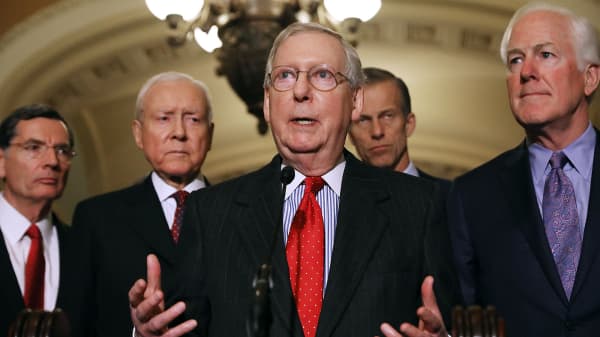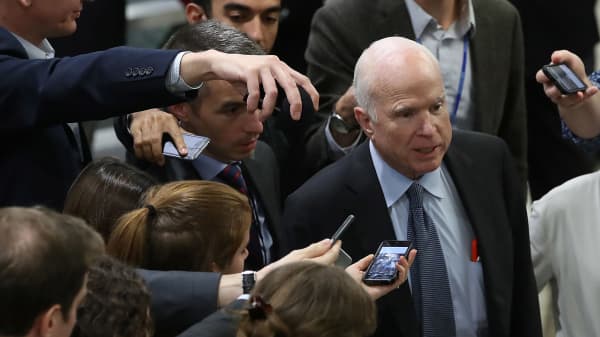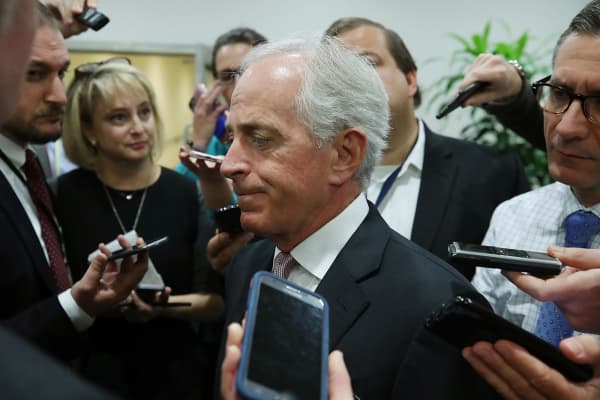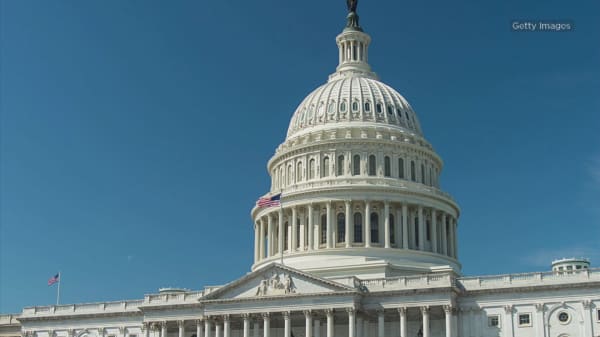After months of negotiations, House and Senate Republicans have produced separate versions of a sweeping tax package with dozens of provisions that would cut some $1.7 trillion in taxes on businesses and individuals.
With a Senate vote tentatively set for Thursday, a few GOP holdouts are looking to make last-minute deals.
Senate Majority Leader Mitch McConnell of Kentucky has been struggling to whittle down the list of holdouts in his caucus to win approval for the measure. With details of the final bill still in flux Thursday, it was unclear if he had the required 50 votes nailed down.
Here are the latest positions of nine Senators who have expressed concerns about the bill in the run-up to Thursday's floor debate of the bill.









